With various types of Pop-up tent trailers and features available, selecting the right one for your needs and preferences requires careful research and consideration.
It is crucial to understand how easy it is to set up, maintain, and store these trailers, as well as the important amenities and features for your camping needs.
Key Takeaways
- Pop-up tent trailers combine the comfort of an RV with the adventure of tent camping.
- Diverse features and amenities cater to a wide range of camping preferences.
- Proper setup, maintenance, and storage are important for maximizing the enjoyment and lifespan of your pop-up tent trailer.
Types of Pop-Up Tent Trailers
When considering a pop-up tent trailer, it is crucial to know the different types available on the market and their features.
In this section, I will discuss three primary styles of pop-up tent trailers: A-Frame Trailers, High Wall Campers, and Traditional Pop-Ups.
A-Frame Trailers
A-Frame trailers are a distinct type of pop-up camper that resemble an “A” shape when set up. They offer a perfect balance between traditional tent camping and the comfort of an RV, with their solid walls providing an additional layer of insulation.
A-Frame trailers are lightweight, making them easy to tow behind vehicles, and their unique design allows for quick and easy setup.
One of the popular manufacturers of A-Frame trailers is Rockwood by Forest River. Their floor plans are designed for campers who enjoy a more compact and cozy camping experience.
High Wall Campers
High-wall campers are a variation of pop-up tent trailers that feature taller walls compared to traditional pop-ups.
Their increased height provides more interior space, which can accommodate additional amenities such as larger countertops, cabinets, and appliances.
High-wall campers generally have more advanced features, making them a desirable option for those seeking a more comfortable camping experience.
Forest River also offers a variety of high-wall campers under the Rockwood brand, each with a unique floor plan tailored to different camping needs.
Traditional Pop-Ups
The traditional pop-up tent trailer, also known as a tent camper, is the classic folding trailer design most people are familiar with.
These trailers have collapsible walls made from canvas or vinyl material that expands when set up, revealing a comfortable and roomy interior space.
Traditional pop-ups are lightweight, easy to tow, and come in various sizes and floor plans to suit the needs of different campers.
In conclusion, knowing the types of pop-up tent trailers and their features can significantly help you make an informed decision that best suits your camping preferences and needs.
Each style offers unique benefits, so understanding their differences will ensure you select a trailer that enhances your overall camping experience.
Key Considerations Before Buying
Towing Requirements
When considering a pop-up tent trailer, one of the first things to take into account is the towing requirements.
Most vehicles can tow a pop-up due to their lightweight design, but it’s essential to check your vehicle’s towing capacity. By doing so, you can ensure it can safely and efficiently tow the trailer during your travels.
Size and Storage
Another crucial aspect to consider is the size and storage of the pop-up tent trailer. These trailers typically offer more space and safety than a regular tent, but their size can vary.
Some models come equipped with modern features such as comfortable sleeping areas, cooking areas, and even showers and toilets.
Make sure the trailer’s size fits your needs and lifestyle.
In addition to the size, it’s necessary to think about storage. If you have a garage, you might need to lower a trailer to fit. Otherwise, you can store your trailer in another dedicated space, like a storage unit or RV park.
Budget and Costs
Last but not least, remember to take your budget and ongoing costs into consideration when buying a pop-up tent trailer.
Pop-up tent trailers can be relatively affordable, but varying price points exist depending on the features you desire. It is important to evaluate whether the investment aligns with your long-term plans and what you can afford.
Besides the initial cost, there are ongoing expenses to consider while owning a pop-up tent trailer.
These include insurance, maintenance, and overall RV ownership costs. Keep these expenses in mind when setting your budget.
Overall, understanding towing requirements, size and storage, and budget and costs are essential factors to consider before purchasing a pop-up tent trailer. By considering these factors, you’re more likely to find the ideal pop-up tent trailer for your needs and lifestyle.
Features and Amenities of Pop-Up Trailers
Kitchens and Bathrooms
One of the most important aspects to consider when purchasing a pop-up trailer is the kitchen and bathroom facilities.
While the size and type of amenities may vary between models, many modern pop-ups come equipped with a compact kitchen that includes a sink, stovetop, and sometimes even a refrigerator.
However, it’s essential to be aware of potential issues like leaks or low water pressure in RV sinks.
For bathrooms, some pop-up trailers offer portable toilets or even a built-in wet bath with a shower and toilet combination in a limited, waterproofed space.
Sleeping and Living Spaces
Sleeping accommodations in pop-up trailers are often versatile and designed for comfort. Most trailers feature beds that expand from the sides, which can include either hard or soft-side extensions.
Living spaces can be compact, but they typically fit dinette sets that convert into additional sleeping areas.
By utilizing fold-out features and multi-purpose furniture, pop-up trailer owners can maximize their use of limited space. Don’t forget to consider storage options, as many models offer built-in compartments for camping gear and personal items.
Heating and Cooling Options
While some pop-up trailers come equipped with basic heating and cooling options, it’s essential to keep in mind that you might not have all the conveniences of a larger RV or a traditional home.
For example, some trailers may include an air conditioning unit or a built-in fan to combat warm temperatures, while others may rely on natural ventilation through mesh windows and doors.
Propane-fueled furnaces are common for heating.
Be prepared to adapt to various weather conditions and consider upgrading or investing in additional equipment, such as portable fans or heaters, to ensure you stay comfortable throughout your camping adventures.
Setup and Maintenance
Setting Up Your Pop-Up Tent Trailer
Setting up a pop-up tent trailer is quite easy if you familiarize yourself with the process. First, ensure your vehicle is level on the campsite.
Next, stabilize your trailer by lowering the stabilizer jacks. Now it’s time to take care of the lift system for your trailer.
Some units have manual lift systems, while others have electric lifts. While the specific steps may differ, the principle remains the same: raise the roof, then extend the canvas sides.
While setting up the canvas, check for any signs of mildew or mold. It is important to treat these issues as soon as possible. RV traders have tips on handling mold and keeping your canvas in good condition.
Cleaning and Storage
To maintain your pop-up tent trailer, regular cleaning is essential. Focus on cleaning the canvas as it can easily accumulate dirt and grime, which leads to mildew and mold. Using RV-specific cleaning products is recommendable.
Don’t forget to clean the inside of the trailer too, as well as frequently used components, such as water tanks, heaters, and storage compartments.
If there’s an issue with your RV water turning yellow, Wise Frontier Living provides guidance on this.
Before storing the trailer, make sure it’s dry and properly aired out to prevent mold and mildew growth. Also, during storage, check compartments for leaks. Wise Frontier Living offers solutions to fix storage compartment leaks.
During long-term storage, it’s advisable to perform additional maintenance steps, such as draining your water tanks and inspecting the tires and lift system.
Furthermore, if you encounter any issues with your RV water heater starting and stopping intermittently, there’s advice for fixing this issue.
By following these setup and maintenance tips, you can ensure your pop-up tent trailer stays in exceptional condition for years to come.
Additional Tips for Selecting and Using Pop-Up Campers
Weather Considerations
When choosing a pop-up camper, it’s essential to consider the weather conditions in which you plan to camp. Pop-up campers are designed to be compact and lightweight, making them a popular choice among campers.
However, they may not perform well in extreme weather conditions, such as heavy snow or torrential rain.
To ensure a comfortable camping experience, look for a pop-up camper with weather-resistant materials and strong canvas walls, which will help protect you from the elements.
In case you’re planning to camp in colder weather, investing in a pop-up camper with proper insulation is crucial.
Additionally, consider a camper with a built-in heating system to keep you warm and cozy during your camping adventures.
Safety and Privacy
Safety should always be a top priority when using a pop-up camper. Since canvas walls are not as sturdy as traditional RV walls, it is important to take extra precautions to help maintain your safety and privacy.
Before buying a pop-up camper, you may want to have a look at the Top 40 Questions to Consider Asking When Buying an RV. This will ensure that you are well-informed about the camper’s safety features and overall condition before making a purchase.
For added privacy, consider investing in pop-up campers that have separate sleeping areas, with curtains or specialized partitions.
Also, always choose a secure campsite and keep valuable belongings stored safely out of sight.
In conclusion, always consider weather considerations and safety when choosing or using a pop-up camper.
Proper research and planning allow you to enjoy a memorable and comfortable camping experience.


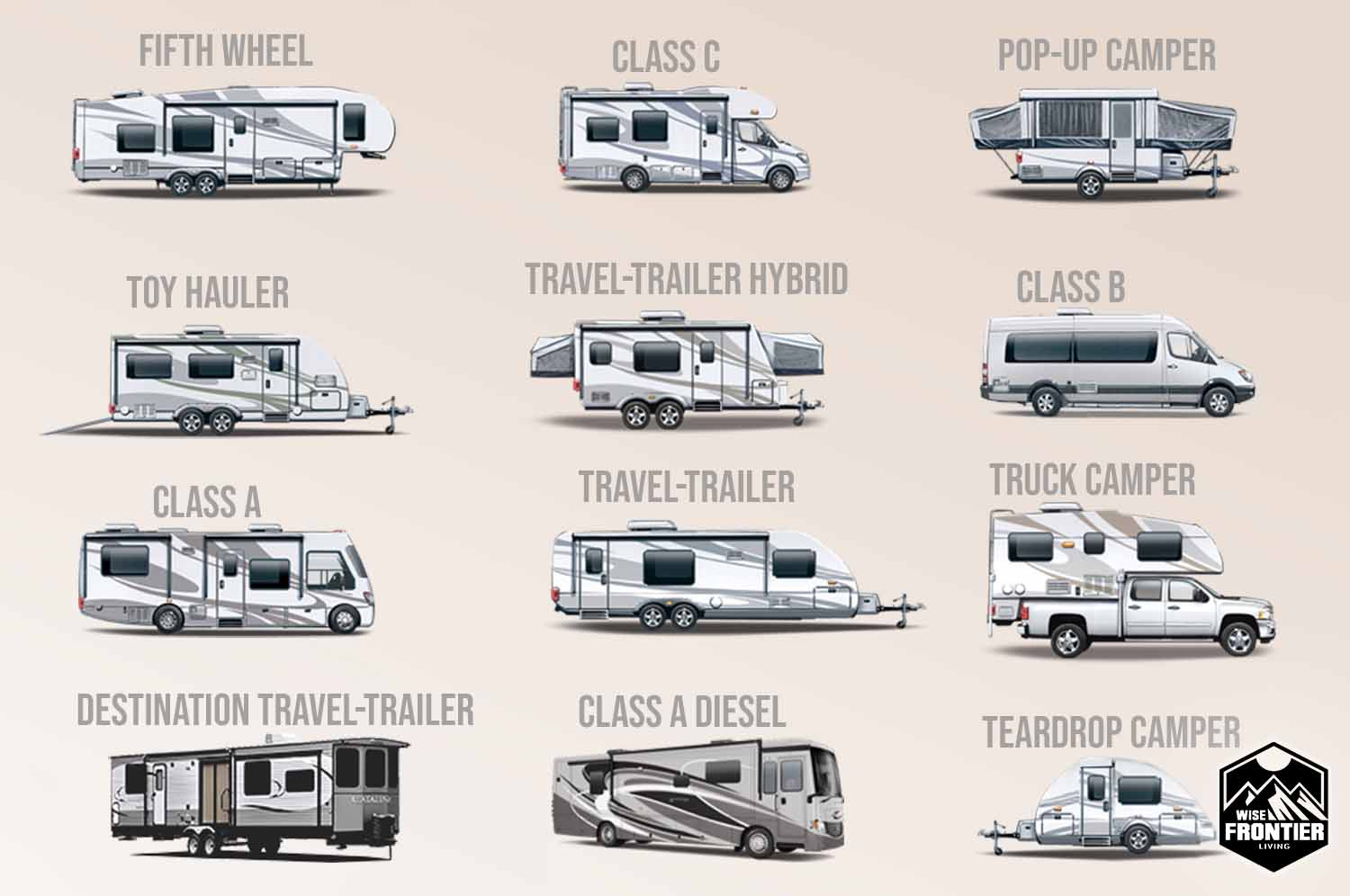
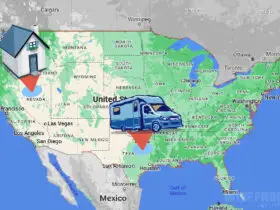
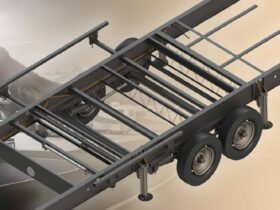
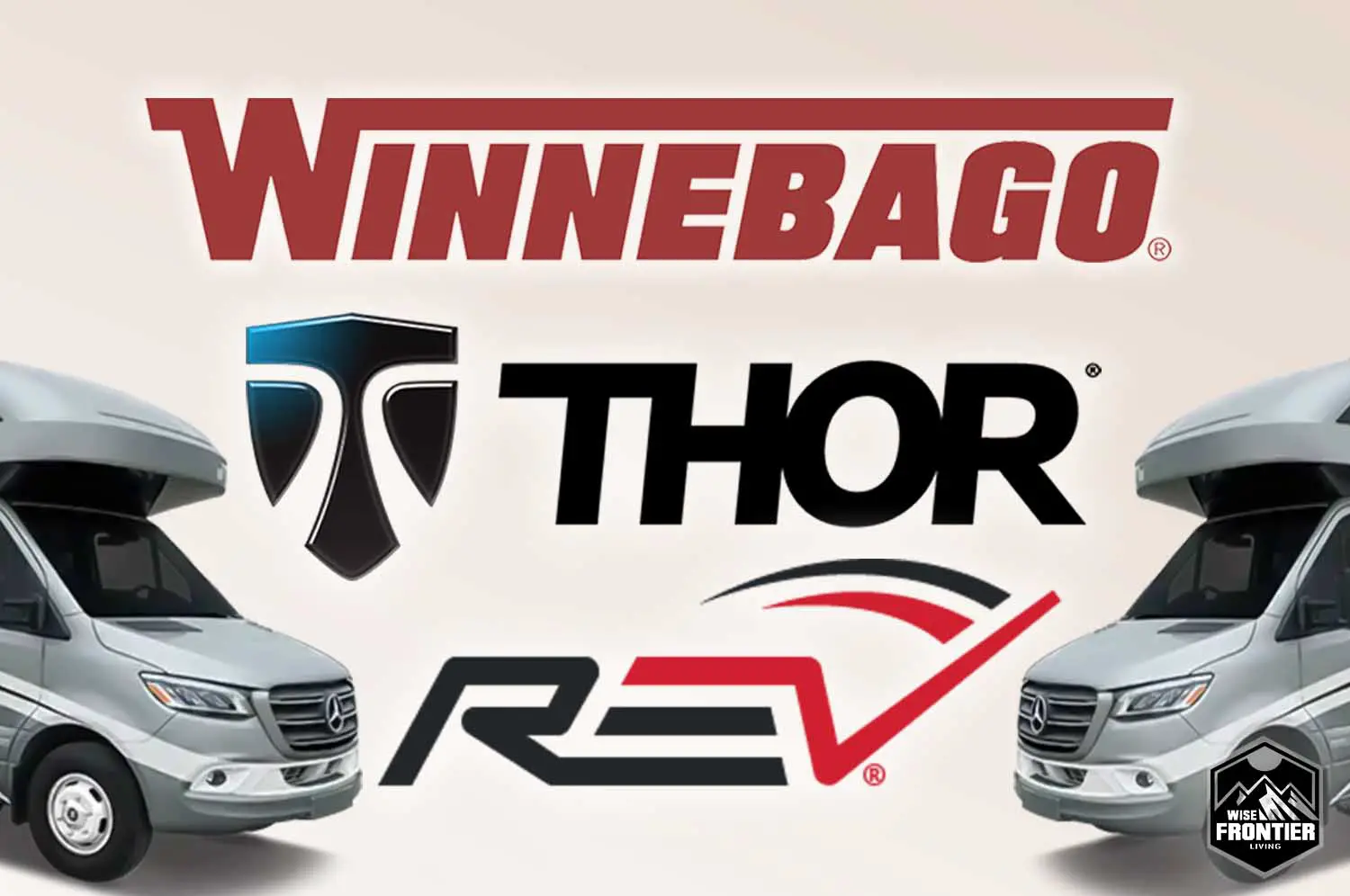
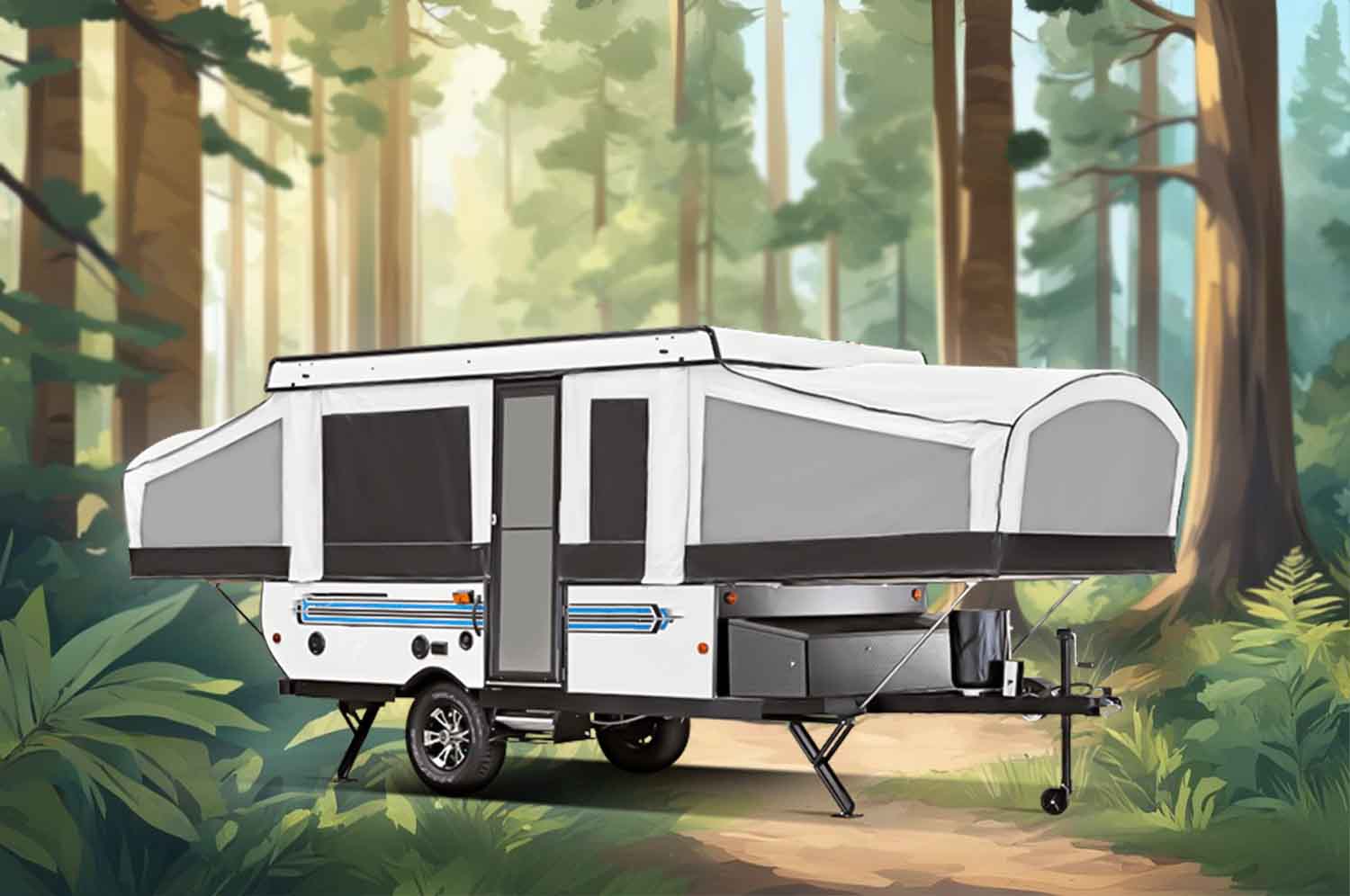
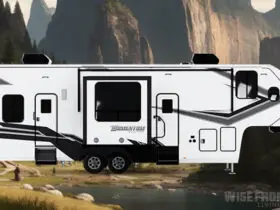
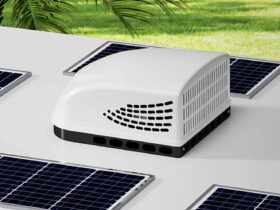
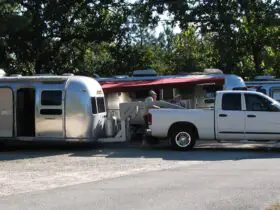
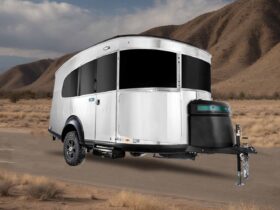
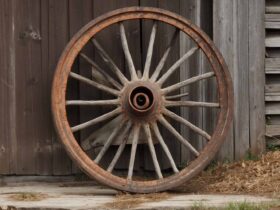
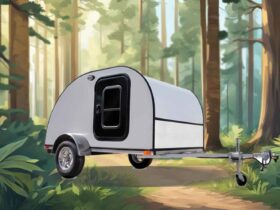

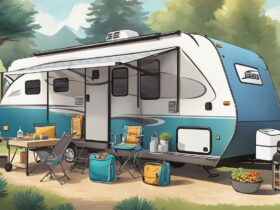
Leave a Reply